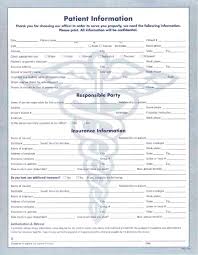By Erika Riggs, Esq., Guest Blogger
As a Social Security disability lawyer, my practice is dedicated to protecting the rights of individuals with disabilities and helping them obtain the benefits they deserve. While there are stringent eligibility requirements for obtaining these vital public benefits, the most important factor is providing medical evidence that supports your claim. Let’s take a look at the medical evidence required by the Social Security Administration.
Does my medical condition qualify for disability benefits?
The first thing you should know is that the Social Security Administration (SSA) maintains a list of medical conditions that qualify for benefits referred to as the Blue Book. If your condition is included on the list and meets the listed criteria, you are generally eligible for disability benefits. You may also qualify for benefits if your condition is not listed, as long as it is medically equivalent to a listed condition.
In both cases, it is crucial to provide sufficient medical evidence in the manner the SSA requires. However, most claims are found to not meet or medically equal one of the designated listings. In fact, the majority of approved claims establish, through medical evidence, that the individual is unable to secure and maintain substantial work due to their condition(s).
What type of medical evidence is needed?
In addition to the list of impairments, the SSA also provides detailed information about the medical evidence that is required in a disability claim. Whether you are applying for benefits under Social Security Disability Insurance (SSDI) or Supplemental Security Income (SSI), you must provide evidence that demonstrates (1) you have an impairment and (2) the severity of your condition.
In short, your benefits claim must include medical evidence such as:
- Doctor’s reports
- An exam history
- Treatment notes
- Lab tests and radiological exams
- Other relevant medical information verifying the diagnosis and prognosis of your impairment
While this seems straightforward, determining what medical evidence should be included with your application can be complicated. As a general rule of thumb, providing more evidence is better than not providing enough. At the same time, providing too much evidence or medical information that is unrelated to your impairment can delay the process or even lead to a claim denial. An attorney who specializes in disability benefits can help streamline and expedite the process by ensuring all relevant records are obtained and even assist with any supportive letters that could help prove disability.
At the end of the day, you must be able to prove you have a disability and that your impairment prevents you from performing any substantial gainful activity or SGA. To make this determination, the SSA considers factors such as:
- The nature and severity of the your medical condition
- The length of time you have experienced the impairment
- Whether you can do the work you did before the onset of your condition or be retrained for some other type of work
Once the SSA establishes that you have an impairment, it will also assess evidence from both medical and nonmedical sources to determine the limitations your impairment imposes on daily activities, such as household chores, cooking meals, and attending social gatherings. Nonmedical sources can include family members, caregivers, friends, and neighbors.
What is a consultative exam?
If the medical evidence provided in your disability application does not support your claim, you will likely be required to undergo one or more consultative exams (CE) by an independent doctor. These exams may involve routine physicals, neurological exams, X-rays, CT Scans, mental status exams or other tests, the cost of which is paid by the SSA.
A CE only demonstrates your physical limitations at the time of the exam, however, and does not carry the same weight as your entire medical history. Nonetheless, if the findings of the exam do not support your claim, or if you fail to keep your CE appointments without a valid reason, your claim could be denied.
Why This Matters
Despite the fact that Social Security provides disability benefits to those who cannot work due to a medical impairment, obtaining these benefits is challenging. In fact, nearly two-thirds of initial claims are denied. While a disability claim can be denied for all types of technical reasons (e.g. application errors, insufficient work credits), providing insufficient medical evidence will surely result in a claim denial.
All is not lost, however, because there is an appeals process, but filing an appeal is complicated. If you or a loved one is seeking Social Security disability benefits, don’t go it alone. The best way to protect your rights and obtain the benefits you need and deserve is to consult an experienced disability attorney.
Author Bio
Since receiving her law degree, Erika Riggs has strictly specialized in assisting people with disabilities before the Social Security Administration and the VA. Erika can regularly be found in her community engaging non-profits and volunteering at community events. Her compassion and commitment to under-served populations are as notable as her skilled and unique legal arguments. Mrs. Riggs received the inaugural Crain’s Detroit Business ‘Notable Women Lawyers’ award in 2017, Avvo’s Client Choice award for the fourth consecutive year, and the 2018 Rising Star award by Super Lawyers (extended to less than 2.5% of attorneys practicing in Michigan).








No Comments
No comments yet.